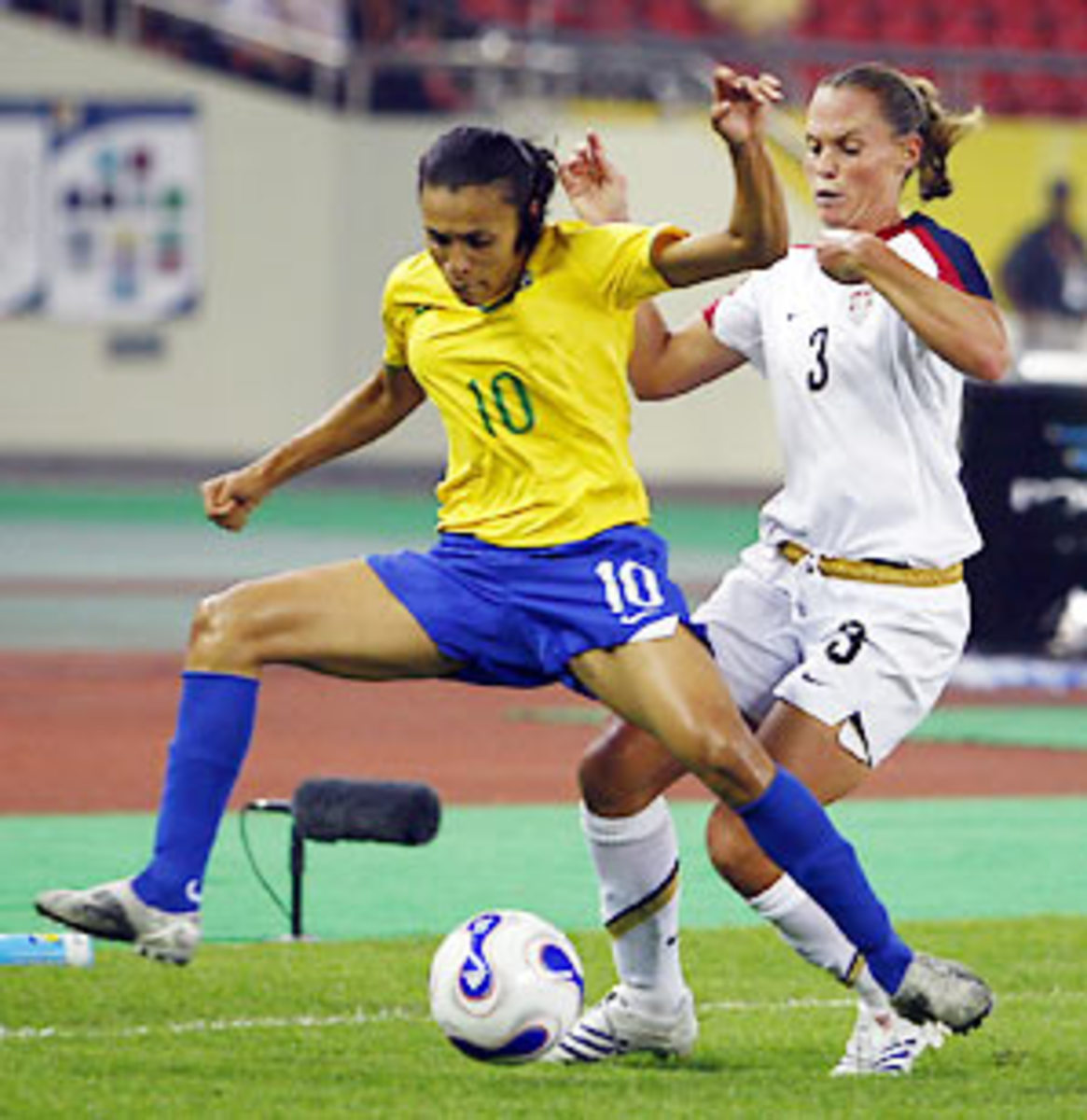
Women's soccer set to try it again
Granted, this women's friendly didn't have the same stakes as when China and the U.S. met in the final of the 1999 Women's World Cup. But the turnout was still a striking contrast.
In a general sense, the two soccer squads have upheld their end of the bargain, fulfilling their promise as traditionally strong soccer nations. Both have made it to every Women's World Cup since then, though neither has won it again. The U.S., however, has collected hardware at the top level twice since '99, winning Olympic gold in 2004 and '08.
Back in '99, though, it was clear the Americans were setting the pace at every standard of the women's game. They had the first superstars: Michelle Akers and Mia Hamm. They had the organizational backing to pay their team regularly. The fan support was also there to sell out World Cup stadiums. Players from around the world came to that tournament and marveled at the experience.
It was only logical that the new professional league for women's soccer, the WUSA, would be launched in the U.S. The best from around the world hoped to play there. Now, of course, the WUSA has come and gone, having lasted only three seasons. The passing decade has seen things have changed considerably in other ways.
As a new league, Women's Professional Soccer, prepares to launch in '09, the American players are the ones now looking outward with hope. U.S. women's national-team coach, Pia Sundhage, believes her players had a lot to learn from others around the world.
"It will be fantastic with the league," said Sundhage, who coached the WUSA's Boston Breakers. "They'll play with and against different cultures, so they have to adjust their game."
Sundhage believes that many teams, including China, Germany, Sweden, France and Brazil, have players on a higher technical level than most on the U.S. squad.
"The Americans, we have to be more technical, hands down," she said. She mentioned specifically the concept of a skilled first touch as something crucial for U.S. players to work on. "We need to work on receiving the ball, receiving the ball and reading the game, so we can actually find a rhythm and dictate the tempo."
Another aspect that has changed in women's soccer is that the U.S. no longer has the sport's reigning icon. That label belongs indisputably now to Brazil's Marta, who has won raves around the world for her creative attacking skill. She is likely to become the highest-paid player in the new league. Which isn't to say that U.S. players won't benefit greatly from WPS.
"What it does, is help those players who may get lost after college," said veteran star Kristine Lilly. "There's a lot of talent out there that may get lost in the shuffle, and hopefully the league will bring that out and continue to make us a competitive country."
Like Sundhage, Lilly believes that exposure to competitive soccer is crucial for development. The level of play has improved in other countries more drastically than it has in the U.S. "We want to be world champions again and all of that helps," she said.
Without a league, the top U.S. female players have been sustained by a residency program that keeps them playing each other for practice. The repetitive set-up makes it easy for players to become stagnant.
What is still an open question is how much support WPS will find from the American public. Attendance at the U.S.-China match on Saturday wasn't encouraging.
"The talent on that field is deserving of a good crowd," said Tina Ellertson, who scored the winning goal in the match. "I just hope that we get that." Especially in tough economic times, if the new league doesn't draw crowds, it may not last long.
Part of what has made Sundhage successful is her knack for focusing on the best possible outcome in a situation. That helped the U.S. rally after losing the opening game in the Olympics. So the uncertain future of WPS didn't dampen her spirits.
"You'll have competitive games in the league and that will help this team a lot," said Sundhage. "You need to be on your toes all the time and not take any thing for granted. If we do that, we have a great four years in front of us."




